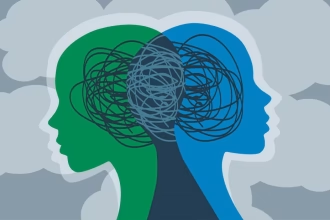In Western societies, many believe love is the most important factor when choosing to marry a mate.
However, sometimes there are good reasons not to get married even when we feel a strong love for a partner. Individuals who choose to get married when they have doubts about their relationships experience more dissatisfaction and distress and a higher likelihood of getting divorced (Lavner et al., 2012).
Different Types of Love
My friend Marielle* dated a man who was very emotionally distant. Although they shared a passionate sex life and dated one another exclusively for two years, Marielle never grew emotionally close to her boyfriend.
Sternberg (1986) delineated three components of love, intimacy (feeling close with a partner), passion (physical attraction and sexual behavior), and commitment (work to maintain the relationship).
These three components alone or in combination blend to form eight different types of love. For example, intimacy alone is described as liking, while passion alone is referred to as infatuation. Intimacy and passion combine to form romantic love, and intimacy and commitment combine to form companionate love.
According to Sternberg, the ideal type of love is consummate love, which includes all three components of intimacy, passion, and commitment. Sternberg also noted that in each relationship, each partner might have their own combination of the components, and in different relationships, different components may be missing.
In Marielle’s case, she felt passion and commitment, but not intimacy, which Sternberg referred to as fatuous love. Although she definitely felt love for her partner, she also chose not to commit to him long-term. Marielle and her boyfriend recently broke up.
The Importance of Respect
My former colleague Robert is dating a man who is harshly critical of others. He criticizes Robert for his sloppiness when cooking, for staying late at work to finish a project, and for his love of comedy movies.
He also criticizes the cashiers at the grocery store, the doorman in their apartment building, and servers at various restaurants. When individuals explain what respect means to them, they often provide examples such as behaving morally, being considerate to others, and being honest and trustworthy (Frei & Shaver, 2000).
Furthermore, when researchers investigated the relationships among measures of respect, liking, loving, and relationship satisfaction, they found that respect for one’s partner was most strongly related to relationship satisfaction, even more strongly than feelings of love (Frei & Shaver, 2002).
Mutual respect appears to be crucial for successful partnerships such as marriage.
Love in Unsatisfying Relationships
Although my friend Robert knows that his partner is not “the one” for him, he still loves his partner and has chosen to stay in his relationship. His attitude toward his partner and their relationship is complex. Psychologists delineate three different components of attitudes: thoughts, feelings, and behaviors (Kassin et al., 2011).
In unsatisfying relationships, our thoughts may be negative, we may consciously think that our partners are not good or right for us, but our behaviors may be positive, we choose to stay in those relationships, our feelings may be positive, and we still love our partners.
It is difficult to leave relationships, even when they are unsatisfying. Joel and MacDonald (2021) referred to this tendency for relationships to continue as progression bias.
Especially when we have already invested a lot of time, effort, or resources into our relationships, we may choose to stay even when our relationships fall short of our hopes (Rego et al., 2016).
As Rego and colleagues explained, when making relationship decisions, we often rely on emotions (the feeling component of attitudes) rather than rational deliberation (the cognitive component).
Love May Follow, Not Precede, Marriage
Just as love may not be a reason to get married, in many cultures, the absence of love may not be a reason to refuse marriage. The marriage of my friends Meera and Drew was arranged by their parents in India when Meera was young. Their parents asked that they meet one another and provide their consent prior to their marriage. They met, liked one another, and agreed to marry.
However, they didn’t know one another well enough to develop feelings of love prior to their marriage.
After marriage, research reveals no differences in feelings of love, commitment, or marital satisfaction among those in choice marriages or arranged marriages (Myers et al., 2005; Regan et al., 2012). Meera and Drew found that their love for one another grew as they progressed through their marriage, and they have been happily married for more than 25 years.
Love may not be necessary nor sufficient to lead to marriage. Some research even shows that couples in arranged marriages feel more marital satisfaction than in choice marriages (Yelsma & Athappilly, 1988). In non-Western cultures, the emphasis on love before marriage is diminished, yet couples still feel love in their marriages.
Note: All names have been changed.
















